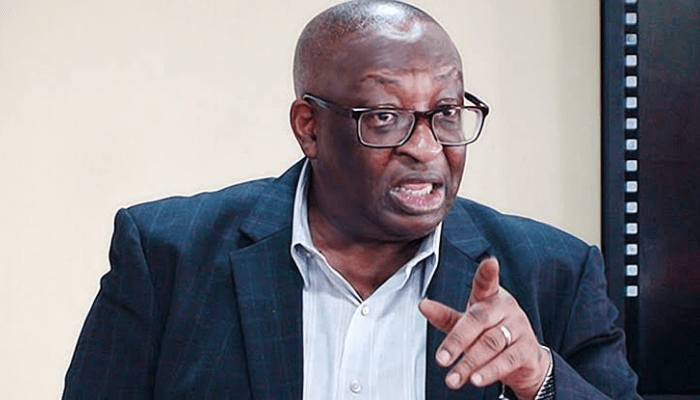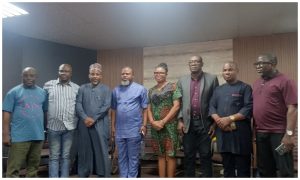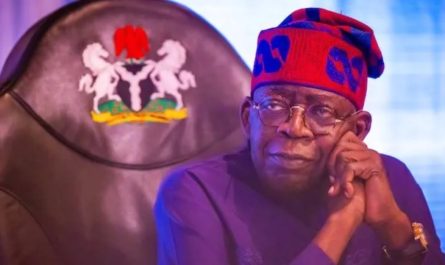After 25 years of civilian rule in Nigeria (since 1999), the entrenchment of the ethos of democracy in governance is still a far cry.
This is not unconnected with unfavourable policies and actions or inactions of some unpatriotic politicians, which have not only brought the economy to its knees but have adversely affected every average Nigerian, especially in recent times.
As the Nigerian government sets aside June 12 for the commemoration of Democracy Day, some economic experts have identified factors militating against democracy vis-a-vis the ideals of June 12 and called for immediate and intentional action from both the government and the people to tackle the menace.
In the 15th Open Forum Town Hall meeting/National Dialogue on the practice of democracy in Nigeria in commemoration of Nigeria’s 2024 Democracy Day, the former Vice-Chancellor of the University of Uyo, Prof Akpan Ekpo, explained that democracy can never be deepened when the Federal Government engages in what he termed “palliative and neoliberal economic policies.”
Ekpo, who is a professor of economics, noted that the humongous amount the Nigerian government expended on palliative rice could have been used to lessen the burden of transportation, education, health, or any other social amenity that would positively affect everyone in society.
Presenting a paper on the theme: “Deepening Democracy In Nigeria: The Struggle Between Politics And Governance,” Ekpo said the struggle between politics and governance has, over the years, brought untold hardship to the vast majority of Nigerian citizens.
He regretted that the ruling class seemed not to know when politics ends and good governance begins, insisting that the country cannot deepen democracy and grow economically when it does not respect the rule of law, which produces better economic outcomes.
He explained that 133 million Nigerians are multi-dimensionally poor, 85 percent of the citizens have no access to the basic necessities of life, and the unemployment rate is at 38 percent, whereas only 10 percent of the citizens are benefiting from the vast resources of the country.
Prof. Ekpo further explained that there is nothing wrong with the government subsidizing any product or chosen natural resource, as bigger democracies do the same. He noted that the problem with the fuel subsidy in Nigeria was the fraudulent manner in which it was managed.
He, therefore, called for restructuring so that states would have more economic power.
His words: “What we need is federalism, give the state more powers. You cannot deepen democracy when you are building a palliative economy. In all the states they distributed rice to, how are we sure rice was their problem? The money the government is wasting on those things could provide cheaper transportation and education.
“You cannot deepen democracy by what I call neoliberal economic policies. Let me tell you, there is nothing wrong with subsidies if they are well managed. In bigger democracies, there is a subsidy; you go to their canteens and eat food at a subsidized rate. If a country, for example, makes a resource from petroleum, why can’t the people enjoy it? Just that the subsidy they were having in Nigeria was a scam, it wasn’t well managed.
“The elites in power do not feel what ordinary people, the poor masses, are feeling.”
In the same vein, another Professor of Economics and former Commissioner for Economic Development in Akwa Ibom, Emmanuel Onwiduokit, noted that if Nigeria is not restructured, the problems bedeviling it would not be resolved even in the next 100 years.
He attributed the economic crises in Nigeria to bad leadership, urging the people to be wary of recruiting leaders whose character and antecedents are in doubt. He emphasized that any Nigerian who seeks to occupy a public office must be educated and have a good track record.
“When we have people who didn’t go to school properly, who lack knowledge and competence, superintending over those who went to school, the result will be what we are having in Nigeria. If we don’t restructure Nigeria, the problem we have cannot be solved in the next 100 years,” he asserted.
Speaking on the volatility of the Nigerian economy, Prof. Onwiduokit said it was wrong for Nigeria to float its exchange rate when the currency is not convertible.
“When your currency is not convertible, you cannot trade with the currency in other countries; you cannot float your exchange rate. And when the industrial sector is weak, you cannot do much. If we don’t restructure Nigeria, the problem we have cannot be solved in the next 100 years.”
Prof Ekpo, for his part, noted that once a country whose currency is not convertible floats it, the currency will be devalued or depreciated, bringing unnecessary hardship to the people, as seen in Nigeria.
On subsidy, Prof Onwiduokit said there is nothing wrong with it as every country in the world subsidizes one product or another, noting that some countries even subsidize tobacco.
“The problem with the subsidy is its management, but you don’t throw away the baby with the bathwater. You can’t say because people were making money from it, and as a government, you didn’t do anything to tackle it. There is a difference between incompetence and corruption. When you are incompetent in office, you will not make optimal decisions; you don’t know what decision to take. We also have people that are so brilliant and competent but make certain decisions because of their inordinate ambitions—that’s corruption. But at the end of the day, the society suffers.
“That is why the recruitment process is very important. Any person that did not go to school properly, any person that is not trained or has a track record should not be allowed to occupy any government position at any level. Development is what will bring about improvement in the quality of life of the people.
“The people are also the problem because they celebrate mediocrity. Somebody steals money, and they give him a chieftaincy title and elect him into office. How do we grow as a country?”
He noted that what will save Nigeria at this point is an intellectual revolution that would make the people mentally alert, conscious, and able to ask questions and ensure that the right people are elected into public offices.
“I said what will save Nigeria is revolution, not necessarily holding guns, but having the knowledge to ask questions—an intellectual revolution that will make the people focused and resist all forms of bad governance,” he said.
On his part, Prof. Amaziah Umanah noted that democracy in Nigeria is undermined, and political parties are seen as individual belongings.
“It’s only in Nigeria that you see governors appointing chairmen of councils, councillors, paramount rulers, chiefs, among others. Is that democracy? Is that governance?” he queried.
Senator Emmanuel Ibok Essien, the Chairman on the Occasion, observed that though politics and governance are interwoven, the two should be separated for the overall good of the citizens.
Ibok Essien, who is the Chairman of the Pan Niger Delta Forum (PANDeF), said the essence of governance is for the public good. Irrespective of the offices that the political class occupy, they should aim to satisfy the interests of the people.
A journalist and public affairs analyst, Emem Nkereuwem, said for democracy to be fully entrenched in Nigeria, citizens should be intentional in having a government that will have the capacity to look beyond the present to future development. He added that the recruitment process is paramount in the deepening of democracy.
On his part, Donald Ekere said Nigeria needs a ‘deliverer’ who has four basic qualities: strength of character, integrity, compassion, and intellectual sophistication to “think outside the box and be able to give us a political system that would solve our problems.”
“Look at Rwanda, Mali, Argentina, etc. The inflation in what they have achieved in three months, the current democracy in Nigeria has not achieved in one year. In three months, the inflation rate, which was thirty percent, is now down to fifteen percent,” he added.
The founder of the Open Forum Initiative and Convener of the event, Citizen Matthew Kofi Okono (MKO), said leaders should understand that politics is over and it’s time for governance, urging them to replace the ‘Nigerian factor’ eating deep with the ‘Nigerian dream.’


